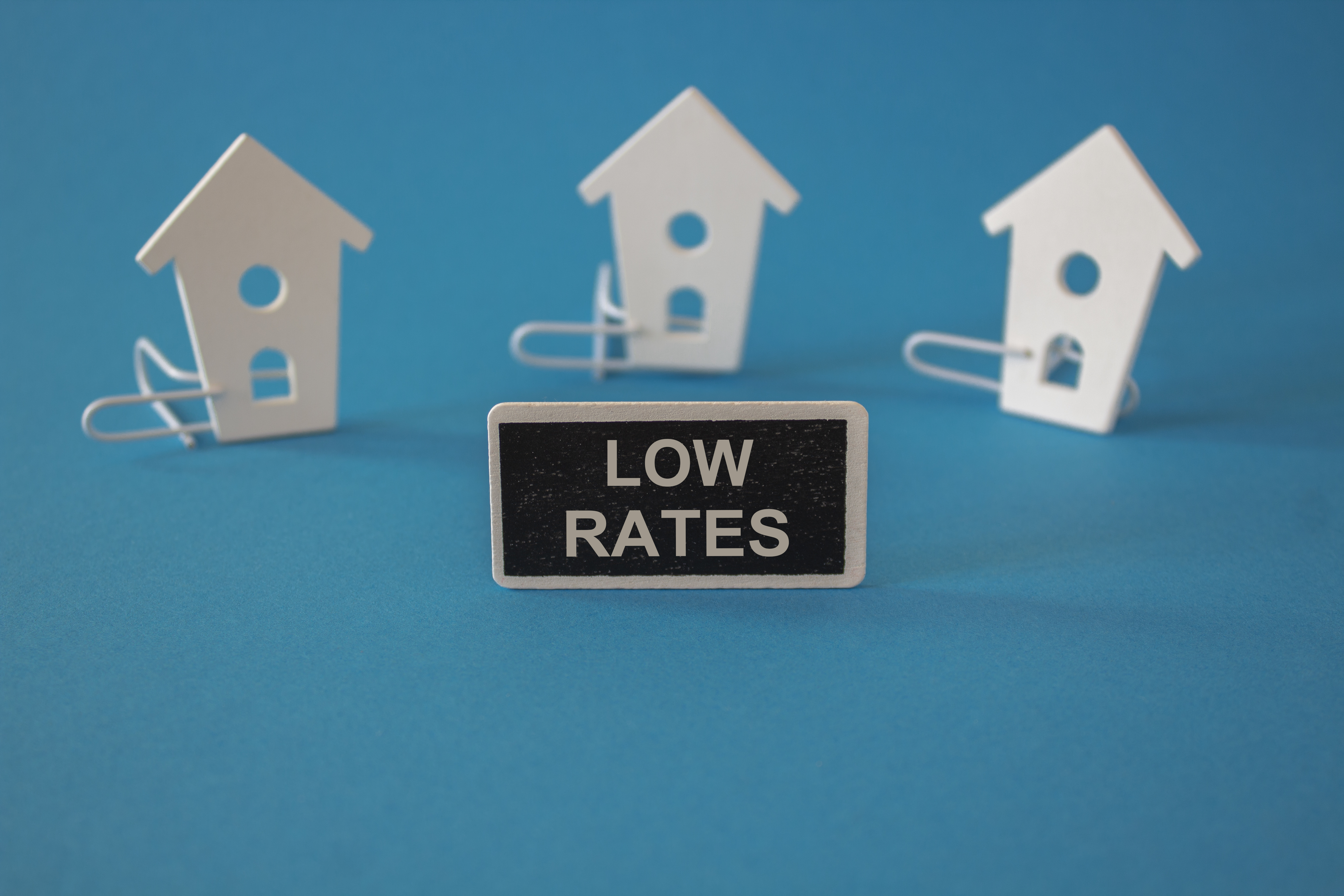 High-Converting Funnels – From Ad Click to Final Sale!
High-Converting Funnels – From Ad Click to Final Sale!
Navigating Self-Employed Home Loans: Your Complete Guide
Written by Dream Home Mortgage » Updated on: June 17th, 2025

For many self-employed individuals, the dream of owning a home can seem like a distant goal. Traditional home loans often require specific documentation and steady employment history, which can pose a challenge for those who do not work for a single employer. However, self-employed individuals are not excluded from the possibility of homeownership. In fact, self-employed home loans are specifically designed to cater to the unique circumstances of freelancers, entrepreneurs, and small business owners. This article explores the nuances of self-employed home loans, providing insights on how to qualify, what documentation is required, and whether it's possible to secure a loan without traditional tax returns.
What Are Self-Employed Home Loans?
Self-employed home loans are a specialized type of mortgage loan designed to help individuals who work for themselves, such as freelancers, business owners, contractors, and consultants, secure a home loan. Unlike salaried employees, self-employed individuals face challenges when applying for a home loan due to fluctuating income and non-traditional forms of documentation. Self-employed home loans offer a way for these individuals to navigate the home buying process.
Unlike conventional mortgages, these loans are often more flexible and can accommodate a wider variety of income documentation. Lenders understand that self-employed borrowers may not always have a consistent paycheck or a typical W-2 form to submit. Therefore, these loans allow borrowers to submit alternative documents to prove their income.
Self Employed Home Mortgage: How to Qualify?
When applying for a self-employed home mortgage, lenders will assess a variety of factors to determine eligibility. Understanding these requirements can help self-employed borrowers prepare and increase their chances of securing a loan. Below are the key criteria typically considered by lenders:
1. Income Verification
One of the most important aspects of getting a home loan self-employed is proving income. Traditional employees usually submit their pay stubs or W-2 forms, but self-employed individuals may need to provide different documentation. Common documents requested include:
Tax Returns: Lenders typically require at least two years of personal and business tax returns. This gives the lender a clear picture of your financial health over time.
Profit and Loss Statements: If a self-employed individual has a business, a profit and loss statement may be necessary to show the income generated by the business.
Bank Statements: Lenders may ask for recent bank statements to verify consistent deposits and financial stability.
In some cases, if you haven’t been self-employed long enough to provide a substantial tax history, you may need to show other proof of income, such as contracts, invoices, or business records.
2. Credit Score
Like any other mortgage applicant, self-employed individuals need to meet a certain credit score threshold to be eligible for a home loan. A higher credit score generally improves the chances of loan approval and can result in better loan terms, such as lower interest rates. Most lenders prefer a credit score of 620 or higher for self-employed home loans, but certain government-backed loans may accept lower scores.
3. Down Payment
Down payment requirements for self-employed home loans are typically similar to traditional home loans. However, some lenders may require a larger down payment to offset the higher perceived risk of lending to self-employed individuals. A down payment of 20% is often seen as a standard amount, though there are options with lower down payments for eligible borrowers.
 https://calendly.com/dream-home-mortgage-appointment
https://calendly.com/dream-home-mortgage-appointment
Can You Get a Home Loan Without Tax Returns?
Many self-employed individuals wonder, "Can you get a home loan without tax returns?" The short answer is: yes, it’s possible, but it’s often more difficult. Tax returns are one of the primary documents lenders use to verify income, so it can be challenging to secure a loan without them. However, there are several alternative options available:
1. Bank Statement Loans
In some cases, lenders may offer what’s known as a bank statement loan. Instead of tax returns, they will use your bank statements to determine your income. Typically, lenders require 12 to 24 months of personal or business bank statements to assess your ability to repay the loan. This type of loan can be helpful for self-employed borrowers who have strong cash flow but may not have sufficient tax documentation.
2. Alternative Documentation
Some lenders offer loans based on alternative forms of documentation. For example, self-employed individuals may be able to submit a combination of business licenses, contracts, or a letter from an accountant to verify their income. The key is to work with a lender who understands your specific situation and is willing to explore creative solutions.
3. Non-QM Loans
Non-Qualified Mortgage (Non-QM) loans are another option for self-employed individuals who may not have traditional tax returns. These loans are designed for borrowers who do not meet the typical requirements for a standard mortgage but can still demonstrate their ability to repay the loan through alternative documentation.
Self-Employed Home Loan Challenges
While self-employed home loans provide greater flexibility, they can still present challenges. Some common hurdles include:
Higher Interest Rates: Since self-employed individuals may present a higher risk for lenders due to fluctuating income, they may face higher interest rates compared to traditional borrowers.
Complex Documentation: Gathering the necessary paperwork can be time-consuming and challenging, especially if income is irregular or difficult to track.
Tighter Lending Standards: Not all lenders offer self-employed home loans, and those that do may have stricter lending requirements compared to traditional mortgages.
 https://dreamhomemortgage.com/steps-to-prequalify-for-home-loan-with-less-stress/
https://dreamhomemortgage.com/steps-to-prequalify-for-home-loan-with-less-stress/
How to Improve Your Chances of Securing a Self-Employed Home Loan
To improve the chances of securing a self-employed home loan, consider the following tips:
Maintain Accurate Records: Keep detailed financial records, including tax returns, bank statements, and business profit and loss statements. Accurate records make it easier to demonstrate your financial stability to lenders.
Improve Your Credit Score: A higher credit score can make it easier to secure favorable loan terms. Pay off outstanding debts, avoid missed payments, and check your credit report for errors.
Save for a Larger Down Payment: A larger down payment reduces the lender's risk and may increase your chances of loan approval.
Work with a Specialist Lender: Some lenders specialize in self-employed home loans and may offer more lenient terms. A specialist lender can guide you through the process and help you secure a loan that suits your needs.
Dream Home Mortgage: Your Trusted Partner in Self-Employed Home Loans
When it comes to securing a self-employed home loan, Dream Home Mortgage stands out as a reliable and expert provider in the mortgage industry in the USA. They offer comprehensive services that cover all aspects of self-employed home loans, ensuring that every client receives personalized and professional assistance throughout the loan process. Whether you are just starting your journey toward homeownership or are looking to refinance, Dream Home Mortgage is there to guide you.
Conclusion
Self-employed individuals have options when it comes to securing a home loan. With the right documentation, understanding the requirements, and working with the right lender, it is possible to achieve the dream of homeownership. By exploring self-employed home loans, borrowers can navigate the complexities of securing a mortgage and find the best options available to them. Whether you are wondering about self-employed home mortgage qualifications or how to get a home loan self-employed, the key is to be proactive, well-prepared, and knowledgeable about the process.
Note: IndiBlogHub features both user-submitted and editorial content. We do not verify third-party contributions. Read our Disclaimer and Privacy Policyfor details.
Copyright © 2019-2025 IndiBlogHub.com. All rights reserved. Hosted on DigitalOcean for fast, reliable performance.

















